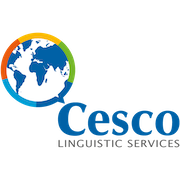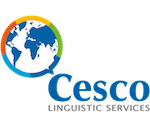- Home
- /
- Blog
- /
- Translation Services
- /
- Is Your Technical Writing...
Is Your Technical Writing Lost in Translation? Unlock Accuracy and Consistency Now

Have you ever struggled with poorly translated technical documentation? As a technical writer, your goal is to ensure that your content is accurate, precise, and engaging for your audience, no matter the language.
Did you know that businesses that localize their content have a 135% higher click-through rate on their website? That’s a significant advantage for companies that want to expand their global reach.
So, if you’re ready to make your content shine globally, join us as we explore how to overcome language barriers, ensure high-quality translations, and connect with your target audience.
Forming a Winning Team: Choosing Your Language Service Provider
Choosing a suitable Language Service Provider (LSP) is like forming a winning team, and just like in sports, you need to pick the right players for the job.
Let’s review the top three factors to consider when selecting your LSP.
1. Industry Expertise: Translating technical documentation is no easy task as it poses a myriad of challenges. You most likely spent countless hours researching the product your documentation describes and possibly asked for a demo or were given a first-hand experience with the product. All of that to ensure that your documentation is engaging, relevant and user-friendly. An LSP with a solid team of linguists will not shy away from thoroughly researching your product and you should in turn expect a language partner to have a high degree of subject matter expertise and experience in your specific field.
2. Quality Assurance Processes: Find out what quality assurance (QA) processes your LSP has in place. We all make mistakes (don’t believe anyone who says they don’t) but having a stringent QA process that emphasizes the importance of following the right steps, not cutting corners and holding everyone involved accountable will go a long way toward reducing the likelihood of any mistake or error ever happening.
3. Cultural Knowledge: Cultural differences can impact everything from product design to marketing strategy and customer service. Having cultural experts and native speakers on board is crucial for your LSP to ensure effective communication. More than accuracy is required; understanding the audience’s culture is paramount. So, let’s get started and form the winning team you need to take on the world!
Ensure LSP is Teched-up To Translate Your Technical Documentation
Any self-respecting technical writer knows they need to be well-versed in the use of several tools, such as software that supports the DITA standard and concept-based authoring, to produce consistent and good-quality documentation. Is your LSP tech ready to handle XML-based technologies? Can it seamlessly connect to your own Content Management System (CMS) to ensure efficient file handling thus avoiding redundancies? Does it offer any terminology management support?
By embracing cutting-edge technologies, your LSP can deliver precise, efficient, high-quality translations to meet your business’s needs.
Furthermore, proper translation tools can streamline the process and achieve better results. Let’s look at some translation technologies that can help you take your translations to the next level.
1. Translation management systems (TMS): With the help of a TMS, your LSP can centralize your translation projects and promote collaboration between translators, editors, and project managers. This cohesive environment fosters accuracy and consistency throughout your project, ensuring that your final product is top-notch.
2. Terminology management tools: Maintaining uniformity in specialized terms can be challenging, but a terminology management tool or glossary can be your secret weapon. With these tools, your LSP can translate specific words consistently, making your content more accessible to your target audience.
United We Translate: A Collaborative Approach to Technical Documentation Translation
Do you want your translations to be accurate, engaging, and culturally sensitive? Building a collaborative environment with your LSP can help you achieve that.
Here are three key steps to creating a partnership that fosters communication, teamwork, and success:
1. Trust and Respect: When collaborating with your LSP, trust and respect are crucial for effective communication and successful outcomes. Trust your LSP to understand your needs, and give them the respect they deserve for their language expertise. It’s like having a teammate you can rely on when the game is on the line.
2. Clear communication: Communication is the key to any successful relationship and is essential in translation. Provide your LSP with clear instructions and context to ensure they understand the message you want to convey. Encourage open communication to clarify any misunderstandings and to provide feedback for improvement.
3. Continuous feedback: The translation process is a journey, not a one-time event. Encourage your LSP to provide you with feedback to help you refine your message and make it more effective for your audience. This continuous feedback loop will strengthen your bond with your LSP.
Conclusion: Embark on Your Translation Journey with Confidence
Poorly translated technical writing can hinder global expansion. To overcome language barriers and ensure high-quality translations, you must choose a Language Service Provider with industry expertise, quality assurance processes, and cultural knowledge.
Your selected LSP must have technologies and tools, such as translation management systems and terminology management tools, to help achieve accurate and consistent translations.
Also, to enhance the translation process, foster a collaborative environment with your LSP based on trust, respect, clear communication, and continuous feedback. This partnership will ensure translations are engaging and culturally sensitive, ultimately benefiting your global reach.
Don’t let poorly translated technical content prevent your business from achieving its full potential!
Experience the difference that Cesco Linguistic Services can make in your global expansion efforts.
Our dedicated team of industry experts, state-of-the-art technologies, and commitment to quality will ensure your translated documentation is accurate, engaging, and culturally relevant.
Related: Understanding Language Barriers: A Technical Writers Dilemma
Ready to take your business to new heights?
Click here now to discover why Cesco Linguistic Services is the ultimate choice for all your technical documentation translation needs.
Let’s conquer the world, one precise translation at a time.
 Cesco Linguistic Services was founded on August 4, 2004. Our passion is to facilitate Human-to-Human understanding in meaningful and rewarding ways through the power of language. We excel at providing expert & timely customized language solutions for organizations of all sizes. The name Cesco (pronounced “Chesco”) comes from the founder’s firstborn son Francesco, whose birth coincided with the year the company was founded.
Cesco Linguistic Services was founded on August 4, 2004. Our passion is to facilitate Human-to-Human understanding in meaningful and rewarding ways through the power of language. We excel at providing expert & timely customized language solutions for organizations of all sizes. The name Cesco (pronounced “Chesco”) comes from the founder’s firstborn son Francesco, whose birth coincided with the year the company was founded.





